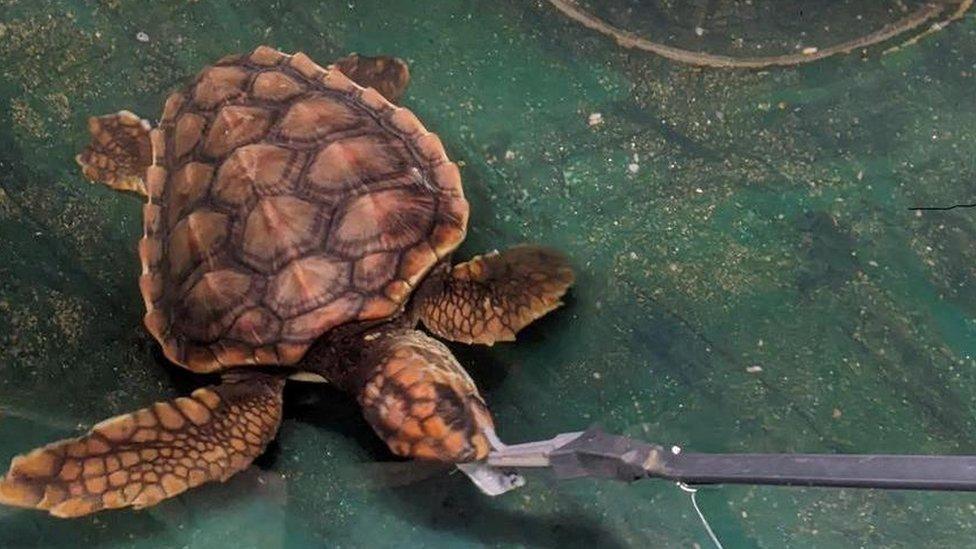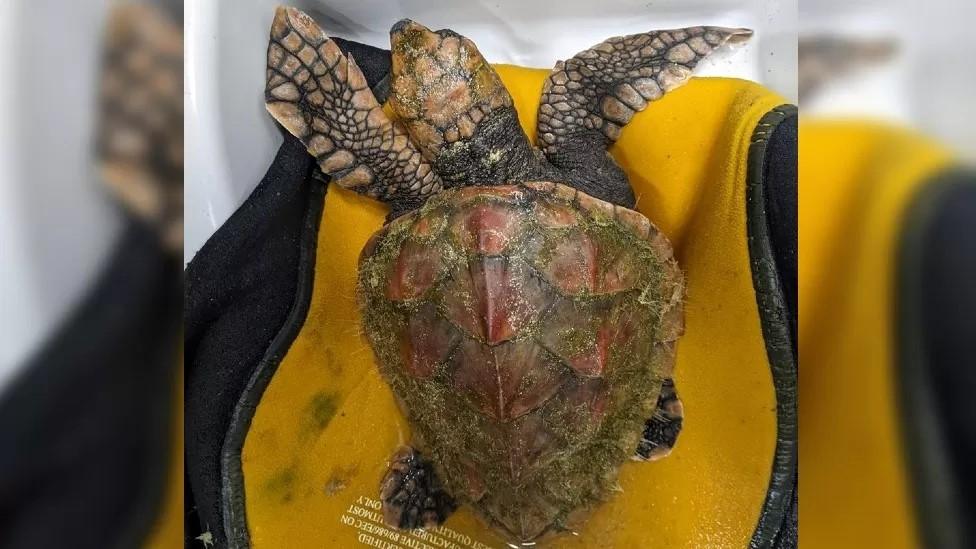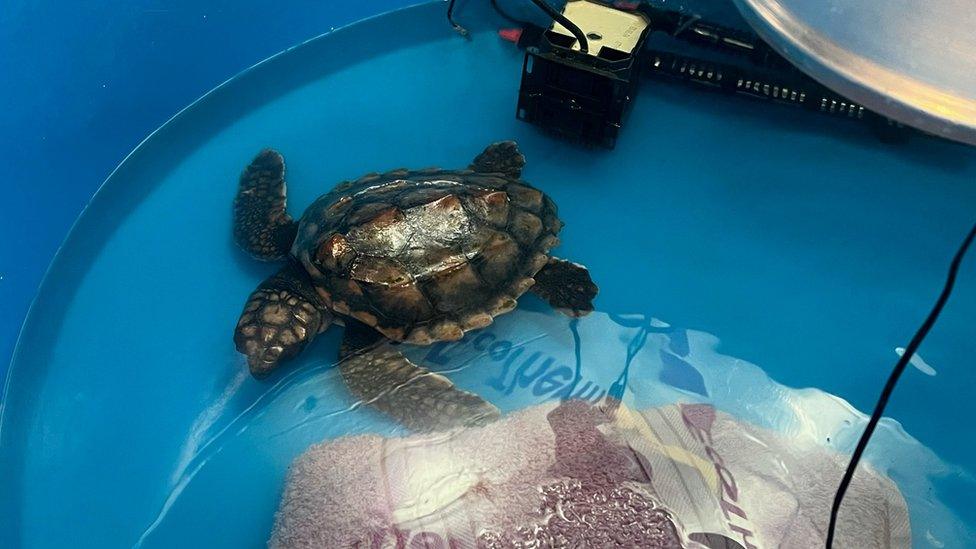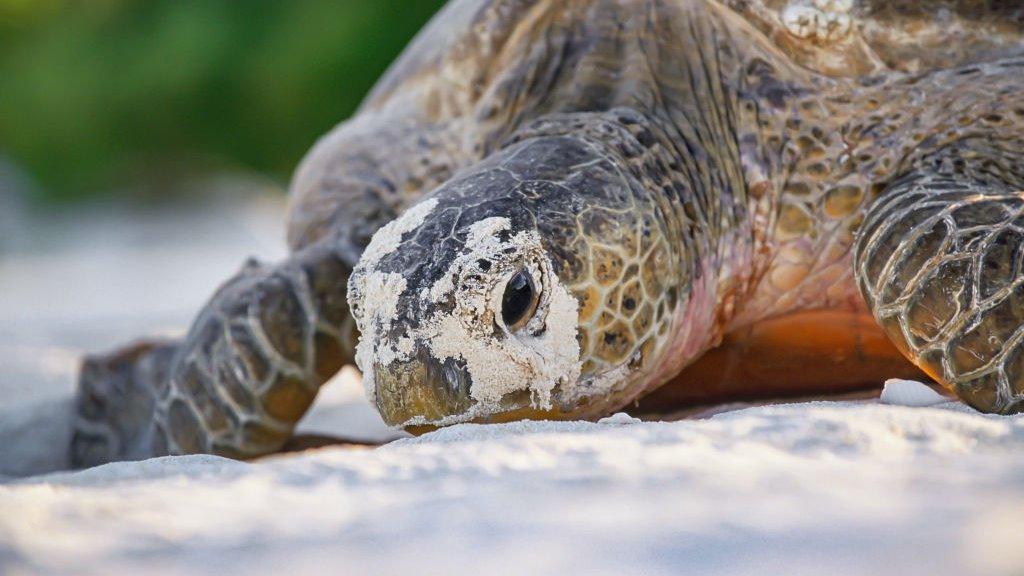Cornwall: Stranded loggerhead sea turtles rescued in Cornwall
- Published
- comments

Three loggerhead sea turtles are being looked after at an aquarium in Newquay.
The turtles were rescued from beaches in Cornwall, after been "taken off course by storms."
When they arrived at the Blue Reef Aquarium they were unwell and in an "extremely weakened state" but the team hope they can help nurture them back to health.
Two of the juvenile sea were found at Perranporth beach near Newquay and the other rescued from Widemouth Bay in Bude.

Steve Matchett, general manager at the aquarium, said: "They are from warm waters and get taken off course by storms when following warm Atlantic currents.
"When they are brought to us we follow an established procedure to try and return them to full health and get them ready for release back into warmer waters, usually near the Canary Isles."
Loggerhead species can usually cope with sea temperatures of 15 degrees, but below that they become unwell.
The aquarium said the turtles were lucky they survived, because they don't cope well in cold waters for a long period of time.
Do not attempt to return them to sea
Wrap them in a towel soaked in seawater without covering nostrils
Put it in a secure place on its belly and do not attempt to warm it up
If inactive, raise the back end of its shell to rest it at a 30 degree angle so its lungs can drain
Blue Reef Aquarium
The process of recovery for the turtles will take a long time.
Assistant Curator Lara Heaney said: "Over a period of weeks we very gradually raise the temperature of the water and when the turtles become more active we can then start them feeding and swimming.
"We always have to be mindful of hidden internal injuries before we can be confident any are on the way to a full recovery."
Loggerhead turtle facts
The most common species of turtle
Found in Atlantic, Indian and Pacific oceans and Mediterranean
They can live for over 50 years
- Published11 January 2023

- Published4 January 2022

- Published27 March 2021

